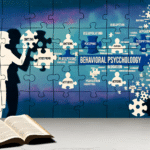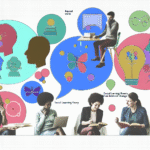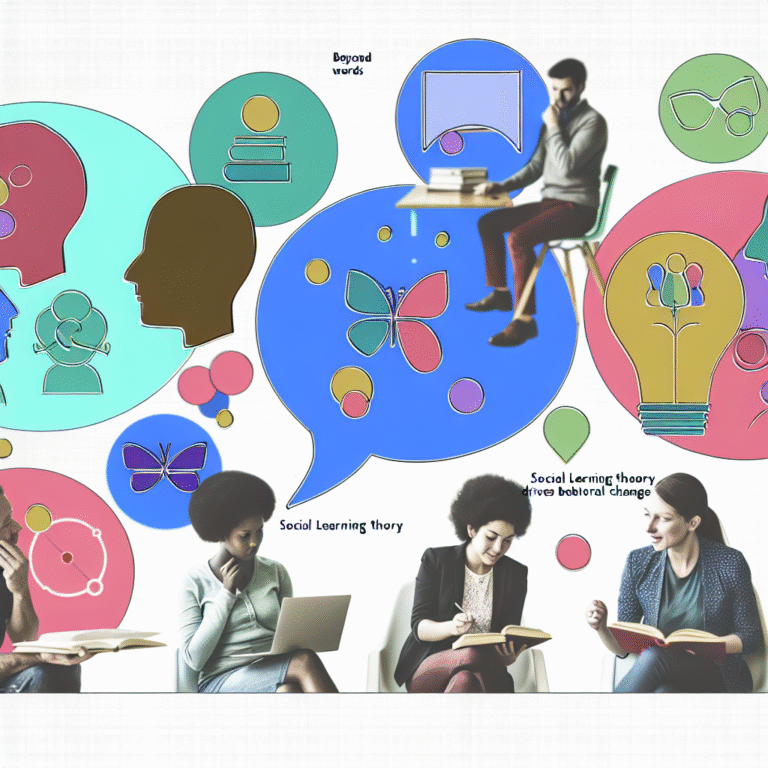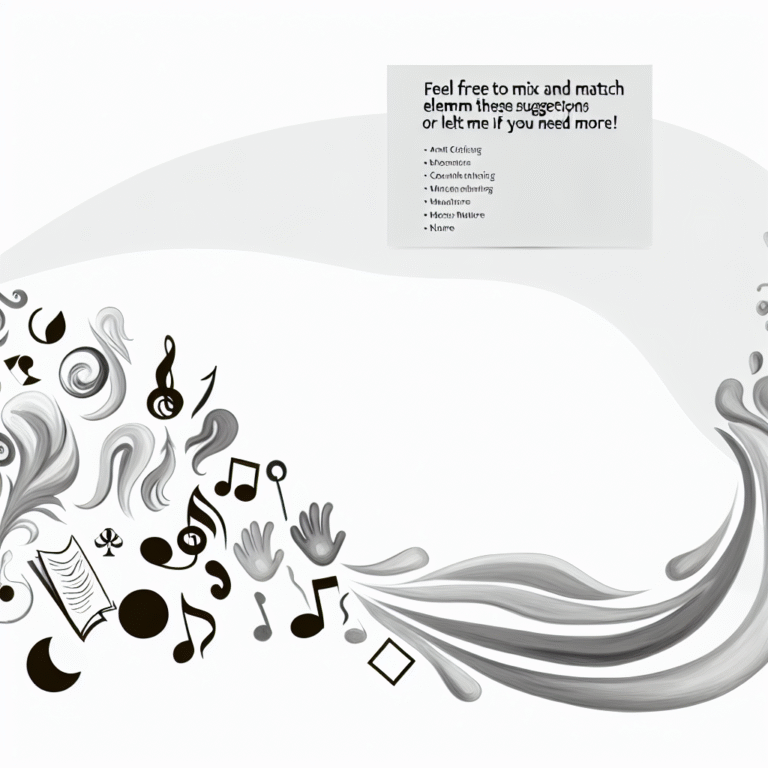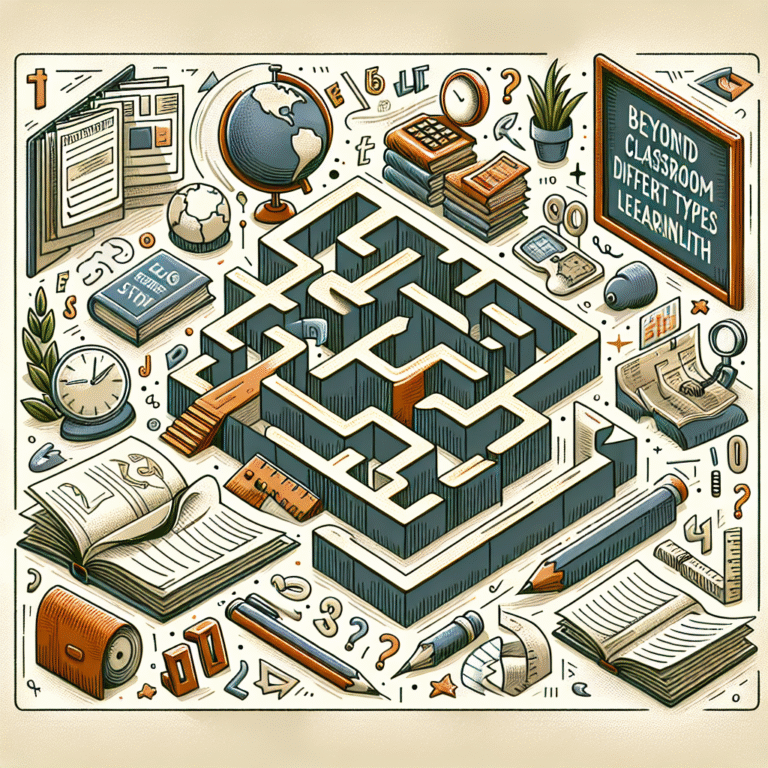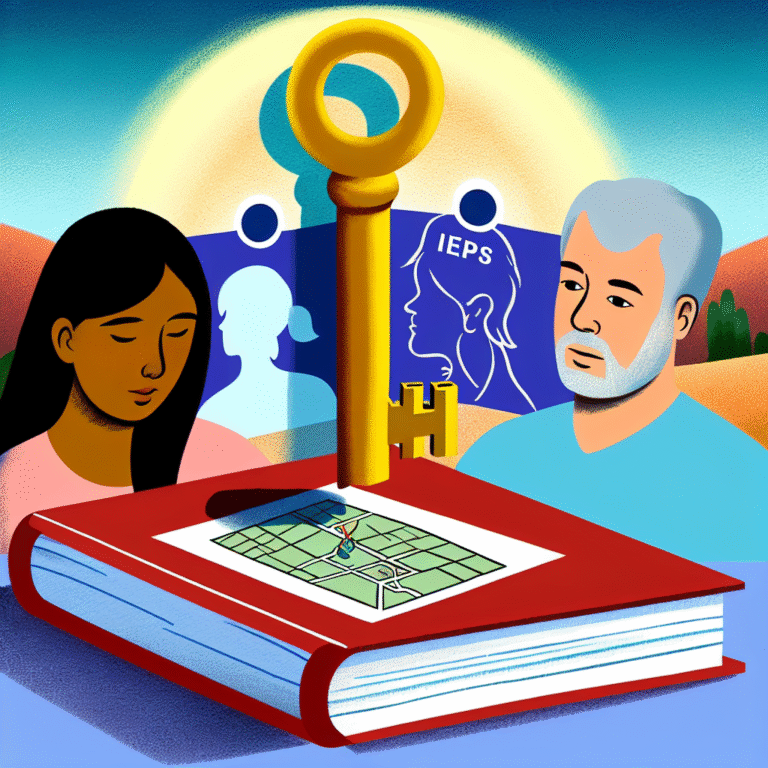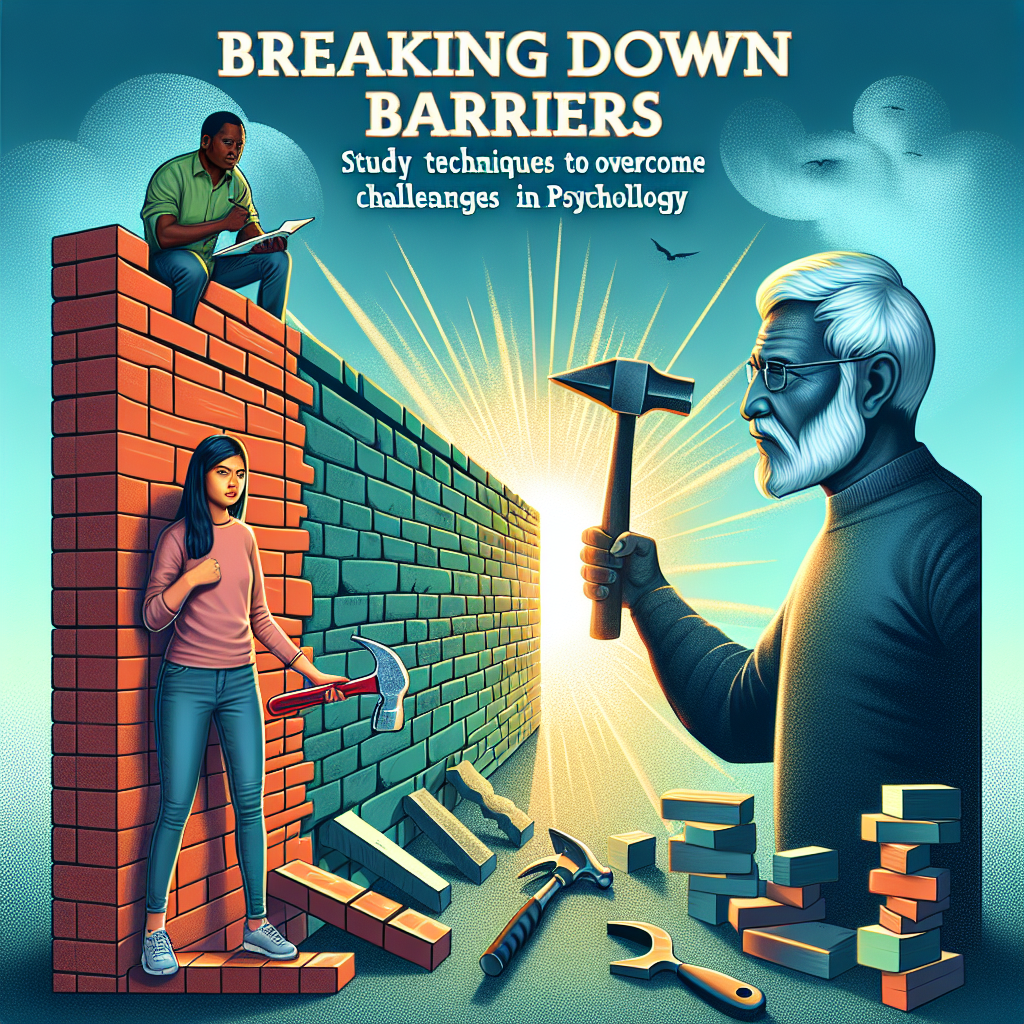
Breaking Down Barriers: Essential Study Techniques to Overcome Challenges in Psychology
Introduction
Every student in psychology knows that the journey through this fascinating field can be as complicated as the human mind itself. From understanding intricate theories to mastering statistical analyses, the challenges can feel overwhelming at times. However, the good news is that these barriers can be broken down! In this article, we dive into Breaking Down Barriers: Study Techniques to Overcome Challenges in Psychology, equipping you with proven strategies that not only facilitate learning but also boost confidence. Let’s embark on this journey of empowerment!
Understanding the Landscape of Challenges in Psychology
Psychology, at its core, delves into human behavior, cognition, and emotions. The complexity of this discipline brings about several challenges for students, such as:
- Theoretical Abstraction: Grasping abstract concepts like attachment theory or cognitive dissonance.
- Quantitative Research Skills: Navigating through statistics and data interpretation.
- Critical Thinking and Application: Analyzing case studies and applying theoretical frameworks to real-world scenarios.
With these challenges in mind, our exploration into study techniques becomes critical.
Key Study Techniques in Psychology
1. Active Learning Strategies
Active learning focuses on engaging students directly in the process, making the material more relatable and easier to remember. Here are some impactful active learning strategies:
Case Study Analysis
Case Study Example: Let’s consider the case of a 30-year-old woman diagnosed with Generalized Anxiety Disorder (GAD).
- Relevance: This real-world example illustrates how psychological theories apply in practical situations, thus aiding retention of theoretical knowledge when students analyze different perspectives.
Analysis: Engaging with case studies encourages critical thinking, as students must assess the situation, identify relevant psychological concepts, and propose interventions.
2. Collaborative Learning
Group study sessions can facilitate a deeper understanding of psychological concepts. By working with peers, students can engage in discussions that challenge their perspectives.
- Benefit: Collaborative learning encourages students to vocalize their thoughts and gain new insights from others.
Group Project Example: The Effect of Social Media on Mental Health
- Relevance: Collaborating on a research project about this contemporary issue can help students utilize various psychological theories.
Analysis: This technique enables students to harness diverse viewpoints, enriching their understanding significantly.
3. Utilizing Multimedia Resources
Incorporating videos, podcasts, and interactive online courses can significantly enhance comprehension. For example, a YouTube channel focusing on psychology concepts can offer visual explanations that adhere to varied learning styles.
Chart – Multimedia Learning Styles and Their Impact
| Learning Style | Multimedia Resource | Effectiveness in Psychology |
|---|---|---|
| Visual | Videos and Infographics | High – aids in concept retention |
| Auditory | Podcasts and Lectures | Moderate – helps with theory application |
| Kinesthetic | Online Simulations | High – enables hands-on learning |
Analysis: Multimedia resources can spark interest and bring abstract theories to life, making complex aspects of psychology more manageable.
4. Time Management Techniques
Effective study requires an organized approach. Time management aids in ensuring all subjects are adequately covered without last-minute cramming.
Strategy: The Pomodoro Technique
- How It Works: Study for 25 minutes, then take a 5-minute break to maintain focus and avoid burnout.
Analysis: This technique can help students tackle difficult material without feeling overwhelmed, allowing for better retention of knowledge.
5. Mind Mapping
Creating mind maps can visualize information hierarchically, which aids in understanding interconnected concepts within psychology.
Example: Mind Map for Theories of Learning
- Concepts: Classical Conditioning, Operant Conditioning, Social Learning Theory, Constructivism.
Analysis: Mind mapping can simplify complex information structures and improve recall during exams.
Overcoming the Psychological Barriers
6. Building Confidence Through Preparation
Feeling inadequately prepared can hinder performance. To build confidence:
- Practice Exams: Regular self-testing helps students benchmark their knowledge against course objectives.
Case Study Example: Preparing for the GRE in Psychology
- Relevance: Many students approach standardized exams with anxiety. Practice tests reduce this by familiarizing students with the test structure.
Analysis: Building familiarity through practice reduces psychological barriers and enhances student confidence.
7. Addressing Test Anxiety
Test anxiety is a real barrier for many psychology students. Implementing mindfulness and relaxation techniques can mitigate these feelings.
Techniques to Combat Anxiety
- Breathing Exercises
- Visualization of Success
Analysis: These strategies help students center themselves, reducing anxiety’s impact on performance.
The Power of a Growth Mindset
Embracing Mistakes as Learning Opportunities
Developing a growth mindset is crucial. Instead of viewing challenges as roadblocks, students should see them as opportunities for growth.
Example: The Journey of a Struggling Psychology Student
- Relevance: Narrating the story of a student who faced several academic hurdles but learned from feedback illustrates the importance of resilience in overcoming challenges.
Analysis: Encouraging students to embrace failures helps them stay motivated and open to learning.
Conclusion
Breaking down barriers in psychology requires proactive, tailored strategies that address unique challenges within the discipline. By implementing techniques such as active learning, collaborative projects, effective time management, and mindfulness, students can transform their psychological studies from daunting to enjoyable!
As you embrace these Breaking Down Barriers: Study Techniques to Overcome Challenges in Psychology, remember that every obstacle presents an opportunity for growth. Empower yourself, stay curious, and keep pushing boundaries!
FAQs
1. What are some effective study methods for psychology students?
Implement active learning techniques, such as case studies and collaborative projects, while also using multimedia resources and time management strategies.
2. How can I build confidence in studying psychology?
Regular practice, mindfulness exercises, and embracing a growth mindset will significantly boost your confidence.
3. Is it beneficial to study in groups?
Yes, collaborative learning helps students gain different perspectives and seems to solidify understanding through discussion.
4. What role does test anxiety play in academic performance?
Test anxiety can hinder performance significantly. Employing relaxation techniques can combat these feelings.
5. Should I focus more on theoretical or applied knowledge in psychology?
A balance of both is essential. Theoretical knowledge provides the foundation, while applied knowledge enhances practical skills necessary in the field.
By understanding the intricacies of your learning path in psychology, you can break down barriers effectively and emerge as a more knowledgeable and confident individual ready to make an impact in the field!
